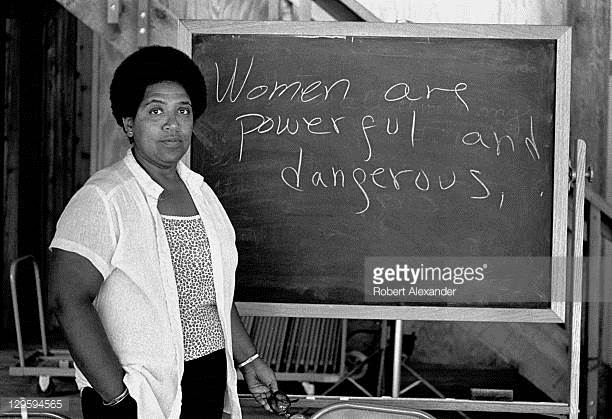Here are my high level takeaways from his latest book, Disunited Nations, & his recent interviews.
TLDR: US created global order after WWII. US backing out b/c no longer makes sense. Chaos ensues.
Accidental Superpower recounts why U.S. created the global order the way they did & why they are leaving
Absent Superpower explains the shale revolution & how it accelerates U.S. retreat
Disunited Nations examines who will flourish & struggle in the new (dis)order
Imperial: You didn't trade for things. You stole them. (Britain pre U.S.)
Post WW2: U.S. sacrificed economics for security to fight the Russians
3rd Age: U.S. forgot about the sacrifice after cold war
4th age: U.S. woke up
Clinton focused domestically.
Bush W was distracted by 9/11.
Obama got it intellectually, but didn't do much.
For 30 yrs, we had no coherent foreign policy vision.
And now Trump is taking sledgehammer to the order.
"You don't have to worry about wars or invasions or supply routes or food or energy or anything. The global system will take care of it, the US will subsidize and protect the global system."
This won't be true anymore. They're on their own now.
This means that countries that flourished w/o the global order will flourish: Japan. France. Argentina. Turkey.
U.S. is in best position b/c it was least dependent of all
- Perfect geography (mountains good, but oceans better, & crunchy exterior so ppl can't get to you)
- Can supply your own food and energy
- Sustainable population structure
- Sufficient military resources to protect oneself
Argentina: Special case when it comes to national dsyfunction.
Turkey: been out of commission for a century
France: Used to be a major power but Germany best them in a global order world.
Japan: U.S. nuked them twice
- Shale revolution = U.S. energy independent.
- Only 8% of GDP came from international exchange, so already independent
- Most balanced population structure
- Geography: not only is the richest chunk of territory, , it is the most secure.
- Children
- Young Adults (millennials are holding down the fort when it comes to consumption, at least in U.S)
- Mature Adults (they work & pay taxes)
- Retirees (they spend)
It's important to have balanced ratios between these 4
- Strong navy
- Good geography for their military
- Expert in de-sourcing "build where you sell"
- It has the capacity to go out and take everything that it needs or interface with friendly countries in order to get what it wants.
- Largest army in NATO outside of the United States
- Recent skirmishes make it "battle tested"
- No one who can really hold a candle to it within its own neighborhood.
- Stable population structure
- Didn't internationalize manufacturing
- Doesn't need global market to sell to
- Doesn't have security concerns Germany has
- Has absolutely everything it needs within its own borders
- Faces no security threats
- Has natural resources the rest of world needs (energy, raw materials, food)
- Good demographics
- Great geography
- Germany doesn't have military strength
- China can't reach beyond the first island chain
- French are regionally obsessed
- Japanese don't want to go beyond Pacific
- British are out of practice
- One child policy led to not enough consumers & workers, & too many retirees
- Import 85% of their energy, that goes away
- They can't maintain their food output
- Low naval capacity
- Credit & debt bubble
- Can't keep up food production w/o imports
- Lack of consumers & aging work-force
- Energy crisis in Middle East
- Export industry collapses
Every pillar that China has used to base their entire civilization on is beyond their control, & it's all cracking at the same time
- Bad demographics (not enough kids)
- Not enough consumers
- No military
- Precarious geographical position
- Internationalized manufacturing
- Energy comes from Russia
- Dependent on trade for 2/3 of GDP
- Bad demographics (too many old & sick)
- Need to annex countries (Ukraine, Baltic States) just to be physically secure & will do once they're sure NATO & U.S. is gone
- Will lose access to European market b/c of Brexit
- Will beg U.S. for trade deal and accept U.S. demands which will put them in competition w/ Mexico
- London loses its place as financial center of the world, which it had b/c it represented EU
The Brazilian situation has only really been successful in an era where global capital costs are low, global transport is safe and global demand for the products is bottomless, which has been true since 1995.
Not anymore.
B/c of shale revolution, everything that's kept the U.S. bound to this region (i.e. oil) is no more
That cuts Iran & Saudi Arabia's biggest economic lifeline. They were basically rentier states w/ one commodity
Rebuilding that economy will take centuries.
All U.S. has to do to destroy these countries is go home. And that's what they're doing.
Electoral college incentivizes split into two parties
Parties have a choice of casting wide net or forming alliances
Democrats cast a wide net, Republicans form alliances
Democrats have more factions, but more voters. Republicans have fewer #s, but more coherent
Trump has excised national security conservatives, & fiscal/biz voters from republican coalition, & courted new factions (e.g. labor)
Democrats reoriented too (e.g pro-immigration)
Reshuffling is common:
Decades of bipartisan effort have yet to screw this up yet, & likely won't in 2020.
/FIN
To learn (much) more, read the book:
amazon.com/Disunited-Nati…
Thoroughly enjoyed @PeterZeihan's latest interview w/ @patrick_oshag: investlikethebest.libsyn.com/peter-zeihan-i…








